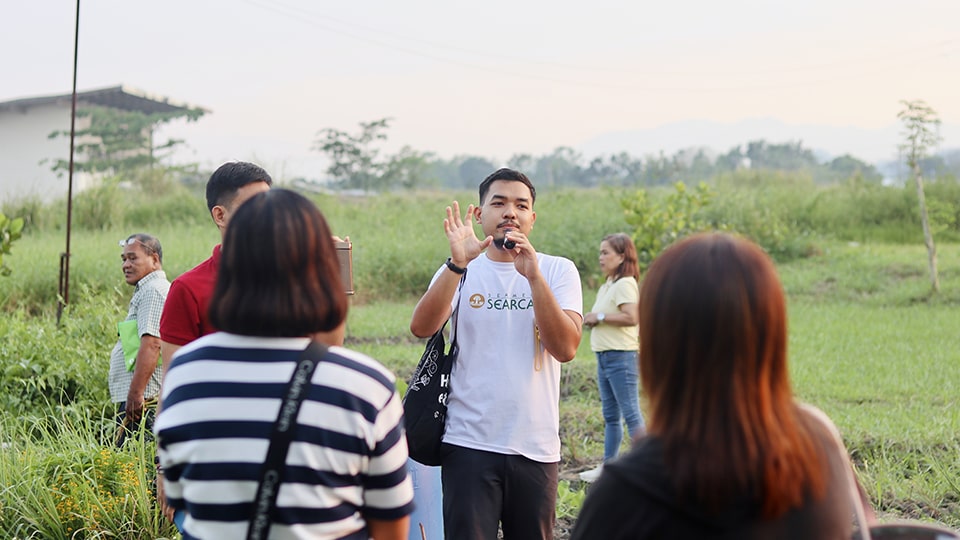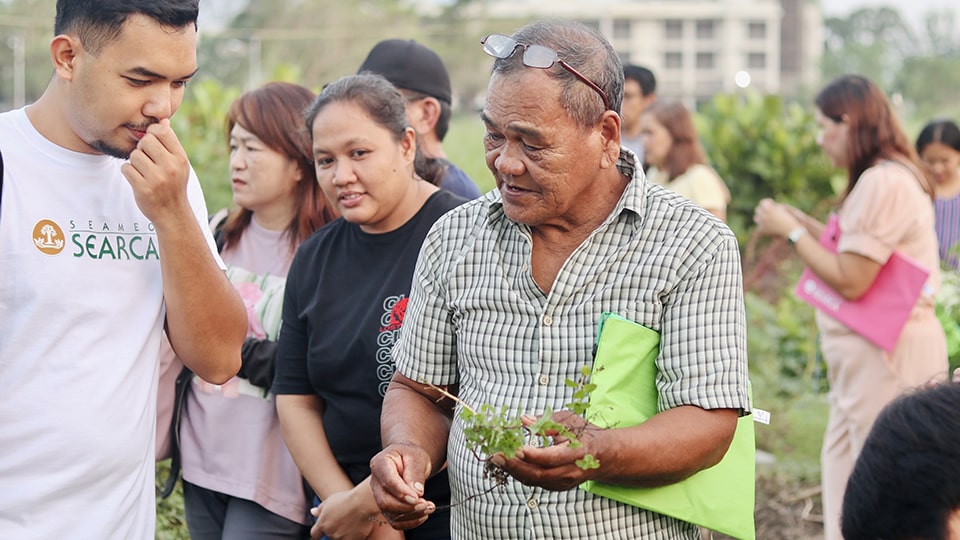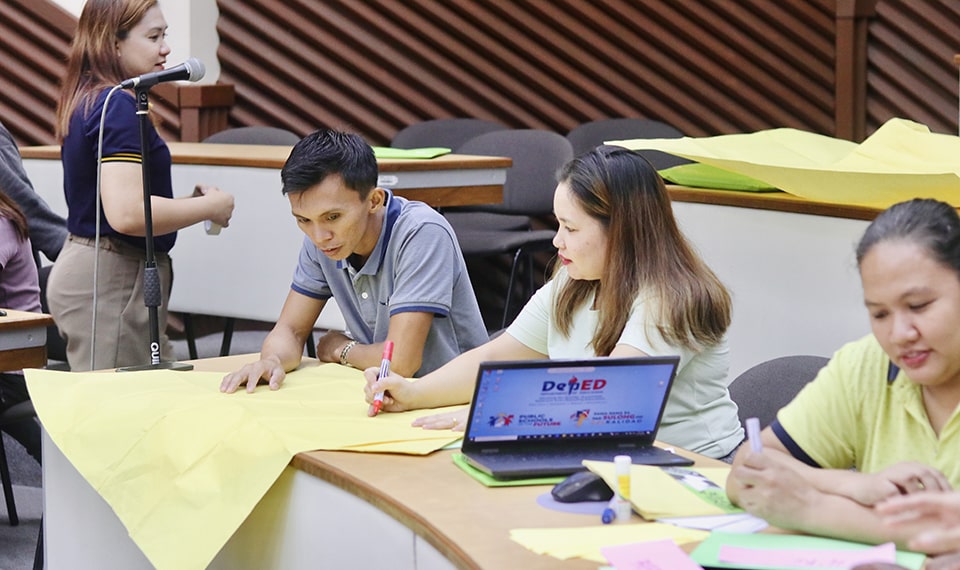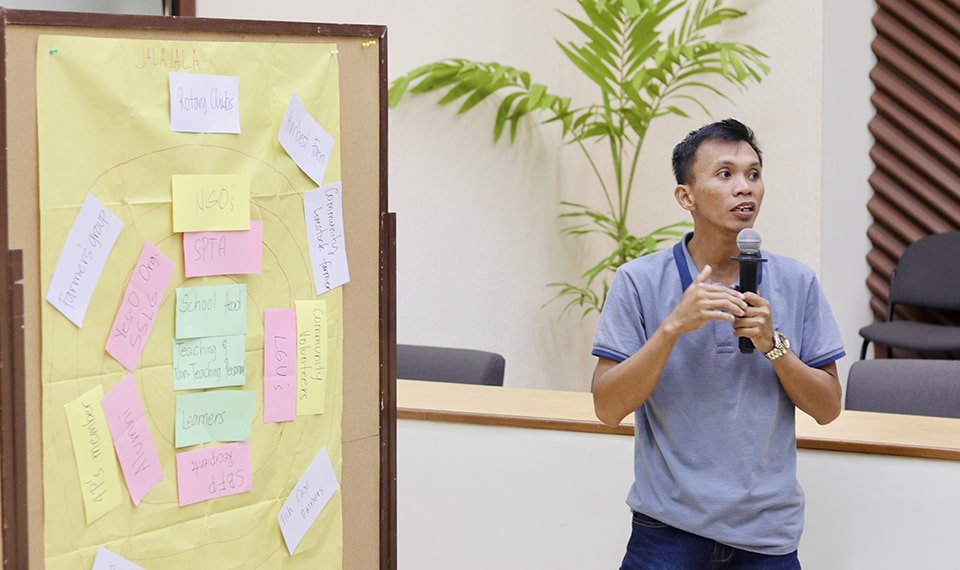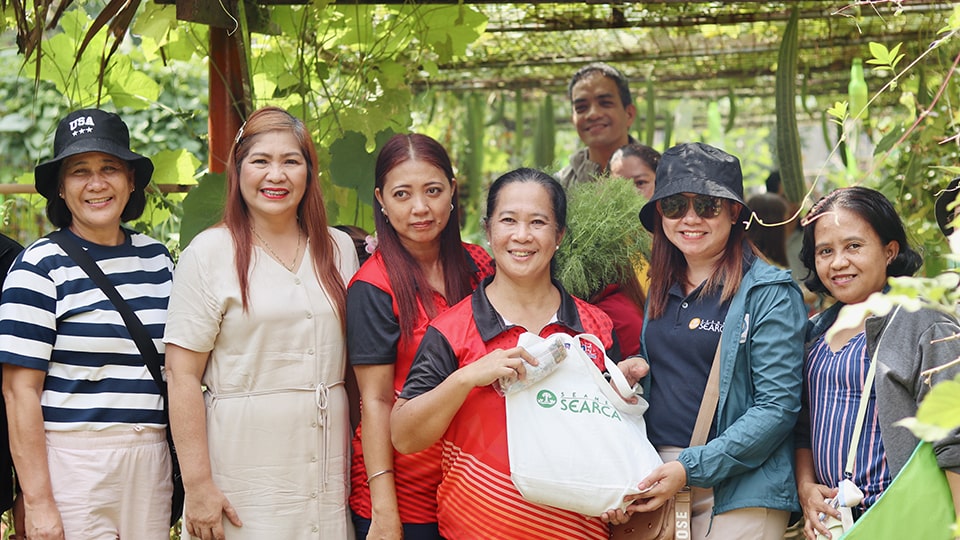 Teachers from San Antonio Elementary School in Los Baños, Laguna, including Ms. Soledad Villanueva, PSDS of DepEd Los Baños, and Ms. Anna Gale Vallez, Program Specialist, during the benchmarking visit of DepEd Rizal Stakeholders.
Teachers from San Antonio Elementary School in Los Baños, Laguna, including Ms. Soledad Villanueva, PSDS of DepEd Los Baños, and Ms. Anna Gale Vallez, Program Specialist, during the benchmarking visit of DepEd Rizal Stakeholders.
LOS BAÑOS, Philippines—The Southeast Asian Regional Center for Graduate Study and Research in Agriculture (SEARCA) has conducted a training program on sustainability for stakeholders of the School Edible Landscaping for Entrepreneurship (SEL4E) in Rizal Province. This initiative aims to enhance the capabilities of educators and technical personnel from municipal and barangay levels, promote collaboration among local government units (LGUs) and partner agencies, and advocate for sustainable agricultural practices through school and home gardening. Such efforts aim to establish a more resilient food system, improve nutrition, and generate entrepreneurial opportunities.
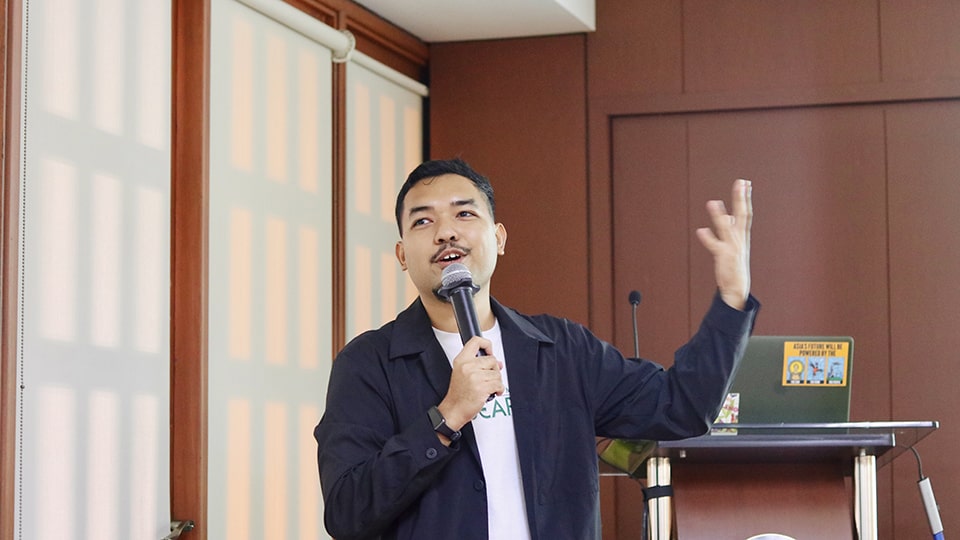 Mr. Antonio Flores II, Technical Coordinator of the SEL4E Project, during the opening of the Sustainability Training
Mr. Antonio Flores II, Technical Coordinator of the SEL4E Project, during the opening of the Sustainability Training
The training was participated in by twenty-four (24) participants, comprising teachers and school heads from the 11 pilot schools involved in Rizal Province, local barangay officials, and parents to where the schools are located. The program commenced with an orientation session that outlined the training objectives and facilitated a shared comprehension among participants concerning its scope and anticipated outcomes. Following this, the participants conducted field visits to San Antonio Elementary School (Los Baños), Labuin Elementary School (Pila), and Faculty of Management and Development Studies (FMDS) PERMA G.A.R.D.E.N (Growing Appreciation Toward Resilience, Development, Entrepreneurship, and Nutrition) of the University of the Philippines Open University (UPOU), where they had the opportunity to observe best practices in implementing the Gulayan sa Paaralan program (GPP) and gardens.
These visits emphasized effective strategies for fostering sustainable gardening within the educational environment, highlighting the innovative technologies, and methodologies utilized to increase garden productivity and educational benefits. The insights acquired during these field visits are intended to inspire and guide participants in adopting and modifying comparable practices within their respective communities and schools, to contribute to the objectives of sustainable agriculture and community resilience.
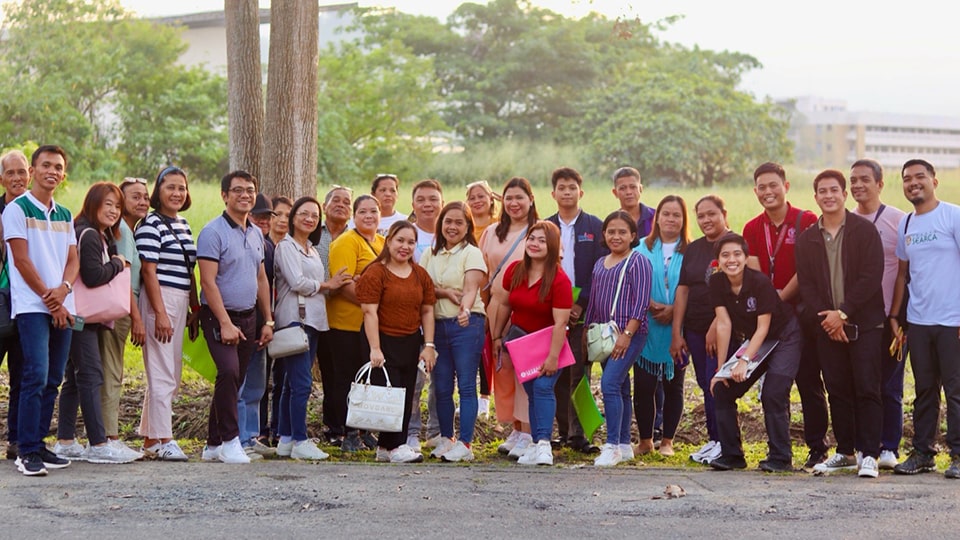 Participants, along with the facilitators, during their visit to the FMDS PERMA G.A.R.D.E.N (Growing Appreciation Towards Resilience, Development, Entrepreneurship, and Nutrition), UPOU.
Participants, along with the facilitators, during their visit to the FMDS PERMA G.A.R.D.E.N (Growing Appreciation Towards Resilience, Development, Entrepreneurship, and Nutrition), UPOU.
The second day began with a series of workshops on community organizing, stakeholder mapping, and partnerships. These sessions aimed to promote effective community organizing among partner schools and LGUs while strengthening their capacity to access funding through existing government programs. Participants were guided on how to refine and update the original SEL4E model, ensuring its adaptability to incorporate additional components and programs as needed. Furthermore, the workshops provided strategies for integrating agri-food system education and SEL4E principles into teaching activities, fostering a more holistic and sustainable approach to education. Refine mechanisms for provincial-level coordination among local government units (LGUs), the Department of Education (DepEd), and partner agencies to sustain multistakeholder partnerships and facilitate the inclusive expansion of the home garden component. Establish institutionalized partnerships with local agencies and the provincial government to ensure ongoing capacity-building initiatives for LGU staff and teachers. Additionally, it proposes enabling policies, memoranda, and ordinances to support the long-term sustainability and scaling up of the home gardens program.
Participants during the on-site workshop on sustainability and scaling-up of strategies for the school and home gardens
The workshop concluded with participants sharing their impressions and key takeaways. They expressed a commitment to applying the knowledge and skills acquired during the sessions to enhance their partnerships with local agencies. They emphasized the importance of leveraging government programs to support the sustainability of school and home garden initiatives. These gardens are envisioned to fulfill a dual purpose by enriching educational activities and contributing to food security, benefiting the community and students. Participants further highlighted the significance of multistakeholder collaboration in achieving these objectives and pledged to actively promote the integration of such programs within their respective institutions and communities.
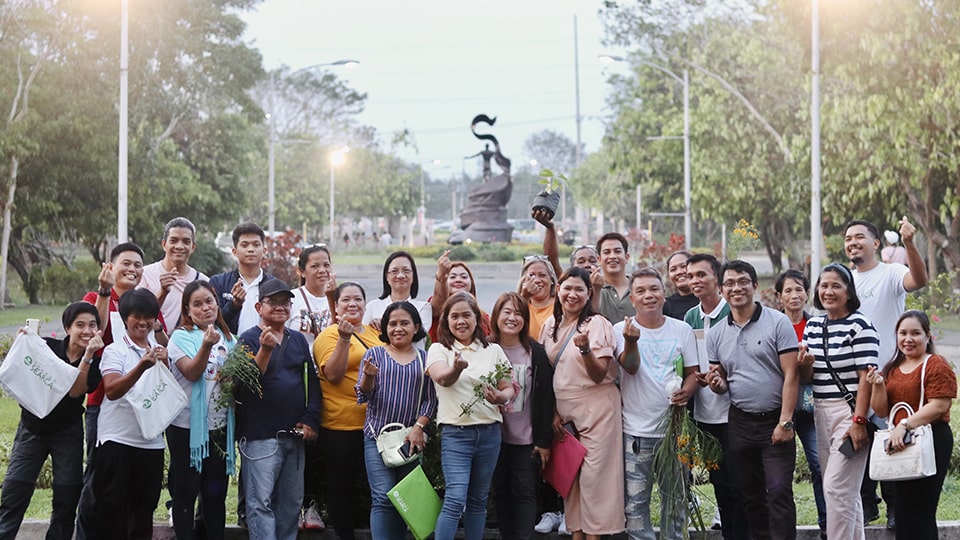 Participants during their field visits in Pila and Los Baños, Laguna.
Participants during their field visits in Pila and Los Baños, Laguna.
